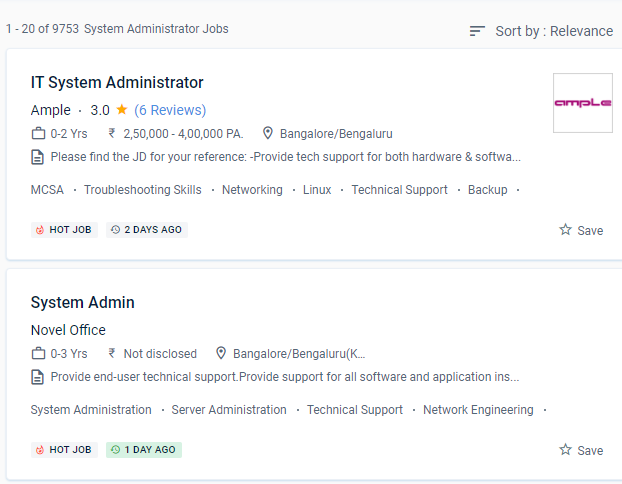System Administration Training by Experts
Our Training Process

System Administration - Syllabus, Fees & Duration
MODULE 1
- System administration introduction, policies, overview, UNIX history and basis
MODULE 2
- File systems and disks
MODULE 3
- Software installation concepts
MODULE 4
- Multi users basics, politics, policies and ethics
MODULE 5
- Automating administrative tasks
MODULE 6
- Networking
MODULE 7
- Backup and disaster recovery
MODULE 8
- DNS
MODULE 9
- SMTP, HTTP
MODULE 10
- Configuration management
MODULE 11
- Distributed computing
MODULE 12
- SNMP, monitoring
MODULE 13
- System security
This syllabus is not final and can be customized as per needs/updates





 All of the important components of the corporate computing infrastructure are managed by system administrators. Some people excel at determining the company's technology needs as information systems managers. These experts may go on to become technology and IT managers in the future.
They are in charge of producing IT policy recommendations for their organization.
The System Administration course in Bangalore will take you from working on a single machine to managing a complete fleet. Finally, you'll discover how to restore your company's IT infrastructure following a disaster. We'll take a deep dive into the cloud, covering everything from common cloud infrastructure setups to cloud resource management. Students who pursue a diploma in this field have a fantastic opportunity to expand their expertise. Systems administration is the division of information technology that is in charge of keeping multi-user computer schemes up and running.
.
All of the important components of the corporate computing infrastructure are managed by system administrators. Some people excel at determining the company's technology needs as information systems managers. These experts may go on to become technology and IT managers in the future.
They are in charge of producing IT policy recommendations for their organization.
The System Administration course in Bangalore will take you from working on a single machine to managing a complete fleet. Finally, you'll discover how to restore your company's IT infrastructure following a disaster. We'll take a deep dive into the cloud, covering everything from common cloud infrastructure setups to cloud resource management. Students who pursue a diploma in this field have a fantastic opportunity to expand their expertise. Systems administration is the division of information technology that is in charge of keeping multi-user computer schemes up and running.
.



















































































